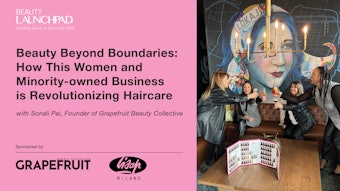
By Casey Powell (@updoguru)
I deal with major depressive episodes and severe anxiety. Sounds scary, right? And it can be. I think of myself as a cheerful person, but I worry constantly—and if I’m not actively working on myself, that’s when the very bad feelings creep in. I’ve talked about depression a lot on my social media because I know it helps me when others share their mental health struggles, too.
What I haven’t spoken about is how I spent a week in a treatment facility near the end of 2020, seeking help for postpartum depression. The lessons I learned in that facility changed my life, and I would like to share some of them with you.
[1] Have something to look forward to. Set up space and time each morning to set goals for your day and think about what you can do to achieve them. Each night, reflect on the goals you’ve achieved, and think ahead to what the next day may bring.
[2] Set boundaries. Both in your personal and professional life, set healthy boundaries; this includes when clients are venting their frustrations, because we can absorb their negative energy. Work on coming up with responses to steer conversation in a positive direction. Or, if you can physically leave a space, take a short walk, watch some funny cat videos—do whatever makes you feel happy and puts you in a different frame of mind.
[3] Support each other. Know that you’re not alone—everyone struggles, and it is our responsibility to help uplift one another. I keep a Pinterest board of happy quotes I can look at not only as a reminder to myself, but to share with others who may need a positive affirmation when life becomes overwhelming.
[4] Ask for help. The biggest thing depression does is lie to you; you are not alone in your feelings, but depression makes you feel that way. Friends and coworkers can’t help unless you tell them you’re experiencing these tough feelings—even the act of discussing your depression with others helps to combat the disease. The moment you start to talk about depression, it starts to lose its hold on you.
Here are a few additional ideas. If you can’t escape the dark cloud that’s metaphorically hanging over your head, try:
• working fewer hours until you are feeling more like yourself
• cutting back on alcohol
• exercising
• taking time to rest without feeling guilt
The last thing I want to leave you with is to pay attention to the “glimmers,” which are basically the opposite of triggers. Triggers close us off because of the trauma we’ve experienced, but glimmers open us up to connect with the good around us. Glimmers are everywhere (some of my glimmers include watching ducks fly and crunching leaves on a walk)—pay attention to and acknowledge the small stuff that makes you happy.











